Benchmarks and Conclusion
HD TUNE PRO

The Ironwolf delivers comparable performance against other 10TB from Seagate. Upon closer examination, we can still see difference between the three siblings. Given to the fact that the Ironwolf is designed primarily as a storage drive, we can see that it has clearly been optimized to deliver the best read performance. The drive delivers the best minimum read and maximum read performance. Additionally, the CPU usage for the Ironwolf is also kept low like the Skyhawk compared to the desktop-bound Barracuda Pro.
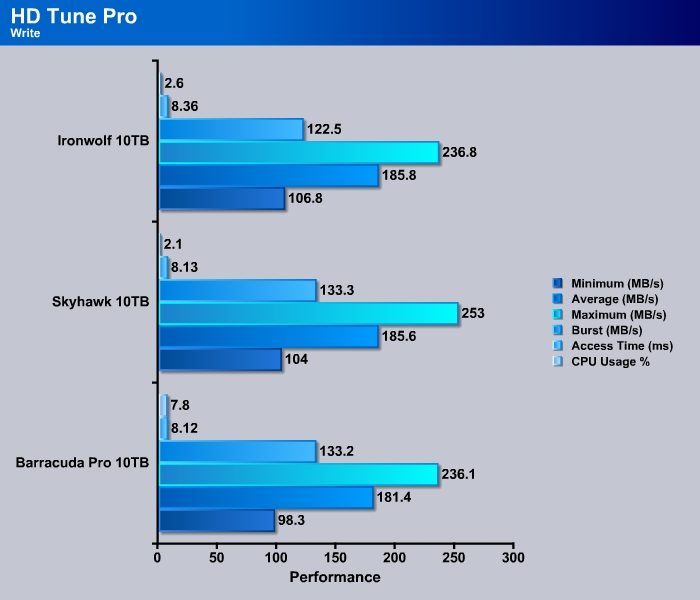
Similarly, the Ironwolf also delivers the best write performance than its siblings. The drive manages to matches the Skyhawk’s minimum and average write performance. The Skyhawk does has a slight edge with the burst write and lower access time. And just like the read performance, the CPU usage is also kept low for the Ironwolf.

For the random access test, the Ironwolf’s read behavior is quite similar to the Barracuda Pro. However, its random read is a tad faster than the Barracuda Pro. The Write, on the other hand, shows a higher IOPS and lower access time. The larger transfer size (64KB and higher) exhibits the biggest performance gain.
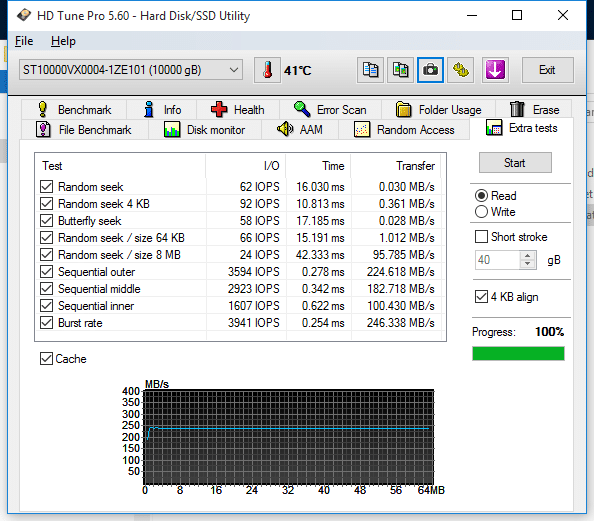
The cache subsystem is where the three drives show the biggest difference. The Ironwolf behaves more like the Barracuda Pro than the Skyhawk. Like the Barracuda Pro, the Ironwolf’s read bursts to 350MB/s and quickly settled to sub 250MB/s. The drive maintained a pretty steady transfer speed throughout the rest of the test. Though unlike the Barracuda Pro that exhibits fluctuation at around 16MB, the Ironwolf is able to hold onto the speed until about 28MB. The Skyhawk has a completely different characteristic where it sustained a steady speed all the way throughout.
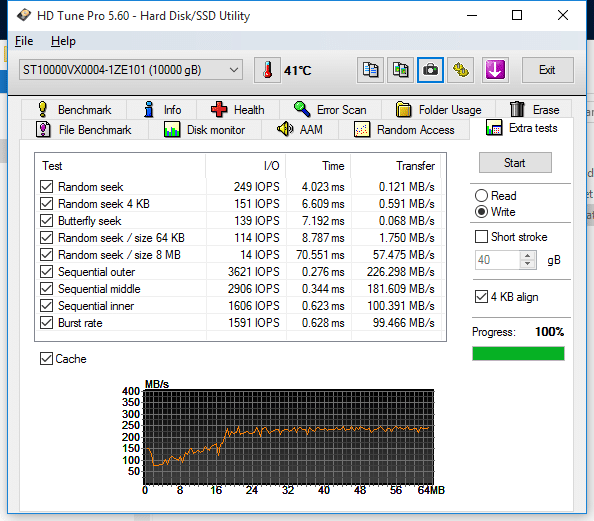
The performance for the write cache subsystem is completely opposite as here the Ironwolf is more closely resembles the Skyhawk. Both the Skyhawk and the Ironwolf are capable of delivering higher transfer speed than the Barracuda Pro. Like the Skyhawk, the Ironwolf reaches to about 230 MB/s at 30 MB whereas the Skyhawk reached to this speed at 20MB whereas the Barracuda Pro to around 200 MB/s.
ATTO
The result from ATTO shows that the Ironwolf performs similar to Skyhawk or the Barracuda Pro. The drive manages to yield 233 MB/s write and 238 MB/s read.
CrystalDiskMark
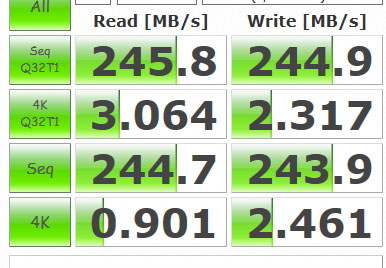
While the CrystakDiskMark is aimed more toward SSDs, the Ironwolf performs well for a mechanical drive in this test. The drive manages to deliver fastest performance than the Skyhawk and the Barracuda Pro. Worth mentioning is the Q32 test where the drive manages to yield excellent result, making it an ideal choice for NAS system.
Intel NAS Benchmark
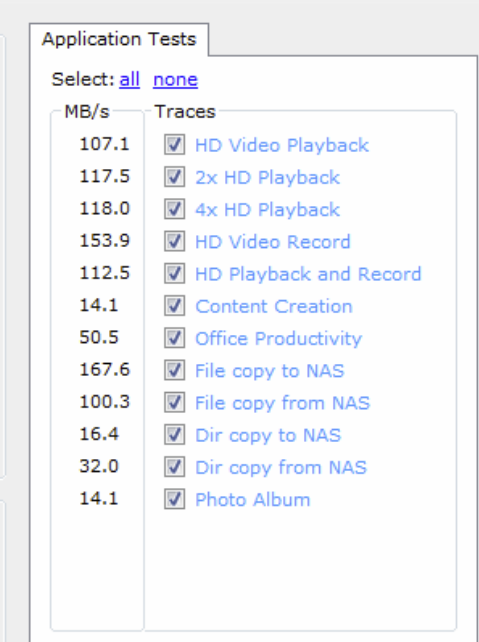
We are fortunate to have three drives in the house that we decide to toss them in RAID 5 configuration in our QNAP TVS-471 NAS and ran a quick Intel NAS Performance test. For more demanding tasks such as HD video playback and HD Playback and Record, the Ironwolf manages to deliver additional throughput than other drives we have tested. Granted for network storage, the network speed would most likely going to be the one that ends up being the bottleneck.
Conclusion
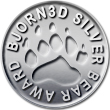 Through firmware optimization, Seagate manages to offer us three different 10TB drives in the Guardian Series where each one is tuned specially to deliver the type of workloads the drive is best-suited for. In addition, Seagate is able to fine-tune each drive through the cache subsystem where we have different characteristics for each drive and therefore different performance.
Through firmware optimization, Seagate manages to offer us three different 10TB drives in the Guardian Series where each one is tuned specially to deliver the type of workloads the drive is best-suited for. In addition, Seagate is able to fine-tune each drive through the cache subsystem where we have different characteristics for each drive and therefore different performance.
The Ironwolf lands right in between the desktop version Barracuda Pro and the always-on Surveillance Skyhawk drive. The drive performs more like the Barracuda Pro in read and like the Skyhawk in write and the CPU usage. This makes the Ironwolf an ideal drive for NAS where has the best read and write performance in the Guardian Series. The low CPU usage also means that the drive should not have any issue running 24/7 inside a NAS system that typically is not as powerful as a typical desktop.
Packed with 10TB of space, the Ironwolf is the fastest drive on the market with such storage. The AgileArray technology with rotational vibration sensor are feature that makes the drive stand out as it is a feature that often found on server grade drive. It is good to see Seagate implement such a feature on a consumer NAS part.
While the standard Ironwolf is backed with 3-year warranty and fairly standard 180TB/year workload, the Pro model is backed with a 5-year warranty and has a higher 300TB/year workload rating. We really would love to see Seagate offer the same 5-year warranty on all of the Ironwolf drives, since NAS systems typically last longer than desktop. And it is not unusual to have a NAS that lasts longer than three years, so the additional warranty would be something that puts the consumer mind at ease. Still, taking this all into consideration, there is really no reason that the Ironwolf is not your choice of hard drive that you want to be inside of your NAS or storage system.
| Pros | Cons |
|
|
 Bjorn3D.com Bjorn3d.com – Satisfying Your Daily Tech Cravings Since 1996
Bjorn3D.com Bjorn3d.com – Satisfying Your Daily Tech Cravings Since 1996

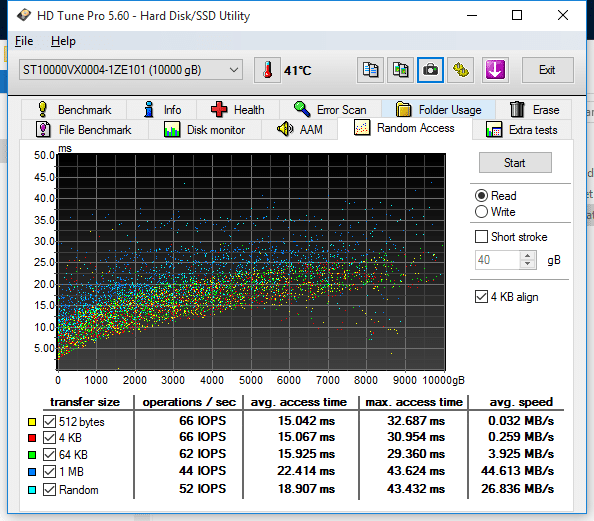

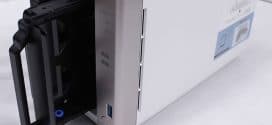
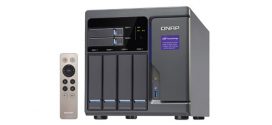
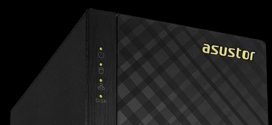




The headers of the table are flipped Skyhawk and Ironwolf.